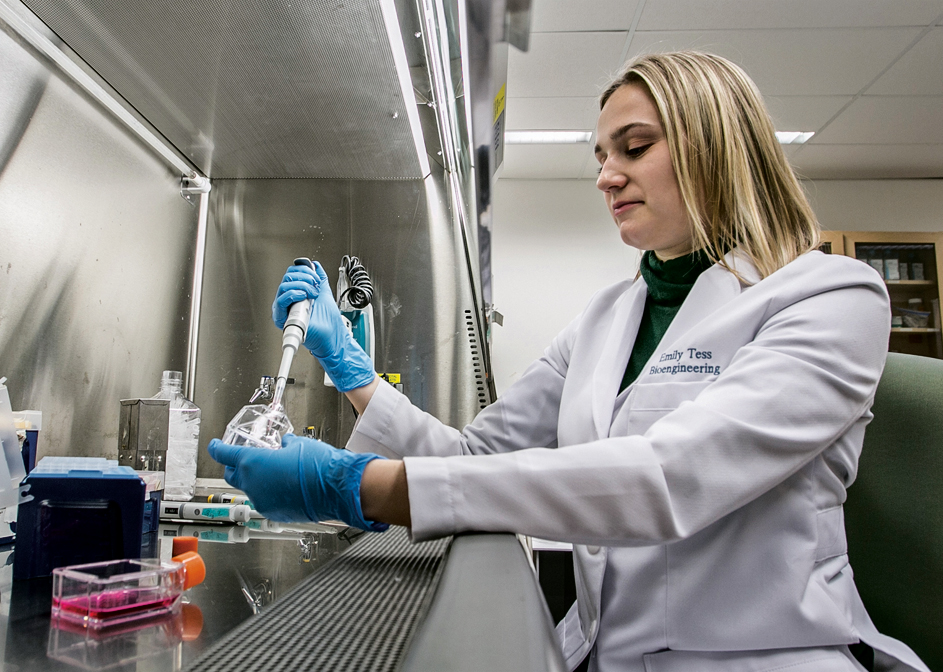
Doctoral Program
First in the Nation
The first doctorate degree in bioengineering in the nation was awarded at Penn in 1953, and since that time, Penn Bioengineering has been an integral academic program linking faculty from the engineering, medical, and arts and sciences schools on a single centrally-located campus. Penn Bioengineering provides students with a flexible curriculum and a world-class research environment. Students are given the opportunity to work and thrive in a collaborative culture that includes multiple generations of leaders in academia, government, and industry. Our mission is to train students at the intersection of biomedicine and engineering in both academia and the biotechnology industries. Students should be committed to learning and be passionate for research. The careful process of matching students with faculty based on their research interests begins with first-year lab rotations, which gives students an opportunity to begin their dissertation research in their first semester.
We welcome students with undergraduate or Masters in diverse STEM disciplines, including engineering, biophysics, physics, chemistry, biology, and computer science. We do not have specific course requirements for admittance, but competitive students often have strong quantitative training in mathematics and/or the physical sciences and a biology background obtained through coursework or research.
Penn Bioengineering’s reputation for research excellence lies within its deep and broad strengths across several areas. Learn more about our areas of research.
Training opportunities:
